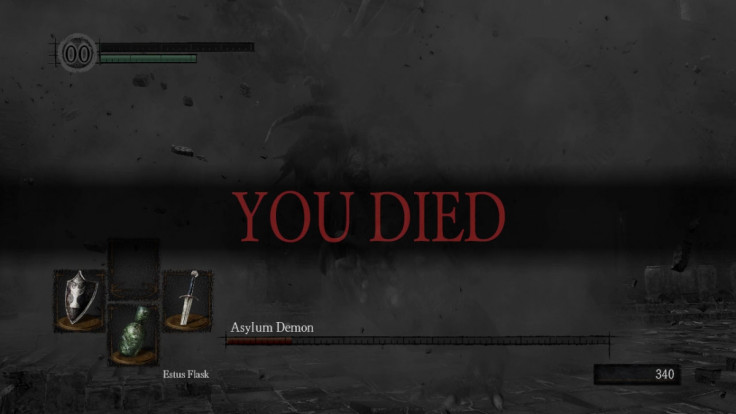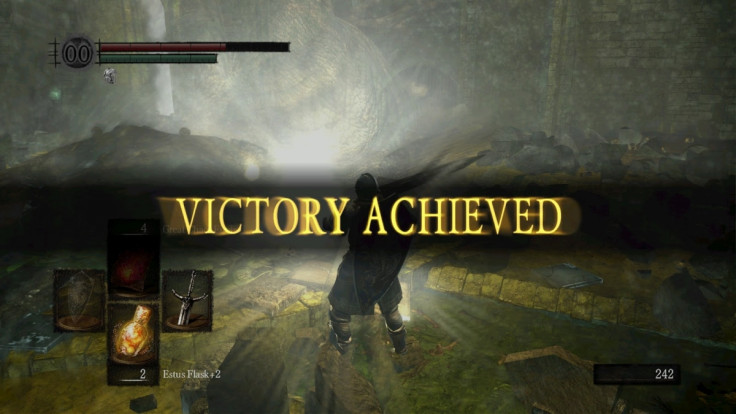Dark Souls: The video game version of my neuroses taught me the importance of failure

Dark Souls genuinely changed the way I feel about myself and the world around me. I'm loathed to begin with such a sickly sounding sentiment, but that's the case. If I were talking about novels or movies, that wouldn't be such a huge claim – in just the past year I've read three, maybe four books that have altered my perspective on my own life and on those of others - but video games are notoriously, proudly, escapist. Often, their quality and their value are rated correlative to how efficiently they remove their players from the everyday.
By that measure, Dark Souls, in my experience at least, can make a unique boast. Like a truly great novel, it challenges, ruthlessly, its audience's perception of topics and themes greater than itself. By the end of Dark Souls, I felt as if I had matured. That's not something I can say for any other video game.
I couldn't handle failure. And I don't mean failure as in professional failure, or even perceptible failure - if I so much as spilled a drink, or spent what I thought was too long getting ready in the morning, I would deteriorate into self-loathing. Even a single tiny mistake would not be tolerated and I would swiftly punish myself for even the slightest perceived error.
I might argue that Dark Souls mirrors what was once my mental state. In the game's most intense moments, a misplaced step or a poorly timed attack can spell instant and costly failure. By the game's brutal enemies and punitive difficulty, every mistake is observed and requited. Surely to play it, in the mindset that I held, was an act of extreme masochism. This was the video game version of all my neuroses.
There were times, plenty in fact, when Dark Souls drove me to despair. It made me hate myself, scream at myself, hurt myself for being a failure – but maturity begins with confrontation. And contrary to its reputation, Dark Souls, for somebody acutely sensitive to personal or perceived failure, is immensely reassuring. By the end, I understood that making mistakes was not just acceptable, it was essential.

Unlike in typically designed video games, progress in Dark Souls cannot be measured strictly in physical distance, enemies defeated or items acquired. After hours of playing Dark Souls, you may still be stranded in the same place, against the same foes, as when you booted up the game, but you have made progress. Trying, failing, trying again, failing again – Dark Souls is an ongoing process of skin hardening, of toughening up. Through repeated deaths, you develop a cast-iron determination to defeat the game's challenges. Like a child, who must fall off his bike time and time again until he learns to ride, failure in Dark Souls is essential to success – if you don't accept that you will fail, repeatedly, and will never emerge victorious.
The game deftly acknowledges this. In most video games, death is treated as a kind of glitch: you die, and the game simply restarts, essentially erasing or retconning your mistake. As Nathan Drake in Naughty Dog's Uncharted series, you tumble from a mountain to your doom, and then spring back to life, and none of the characters, of course, mention your error. Death occurs in video games but it also does not. In Dark Souls however, your death is canon. Wherever you were killed, a small pool of blood and a glowing ball of green light are present when you return. Your character is undead, their ability to die and revive is an integral and recognised part of the game's lore. Dark Souls does not discount your mistakes. Contrary to standard video games, which imply that death, aside from lending a base mechanical twist, has no use and no purpose, Dark Souls intrinsically recognises the importance of failing. You died. But you are back. You failed. But you can try again.
Failure is still punished. Deaths in Dark Souls will set you, physically, back by miles and potentially cost you hard-earned in-game currency but failure is rewarded also. The act of failing in Dark Souls is vitally important to the act of overcoming the game and its challenges. Even those savant players who are able to finish the game without dying are only able to do so because they have played for hours and died innumerable times.
You must die in Dark Souls. You must fail. And each time you do, the game openly acknowledges it as a canonical part of your journey towards success. For a person like myself, mortified by failure and flagellatingly guilty about any perceived shortcoming, being told that my mistakes were not just accepted but constructive, important, necessary, was comforting. Having finished Dark Souls, I felt more at ease with my own occasional errors. It's a simple adage, but one that, until I finished Dark Souls I had never accepted: no pain, no gain.
For all the latest video game news follow us on Twitter @IBTGamesUK.
© Copyright IBTimes 2024. All rights reserved.






